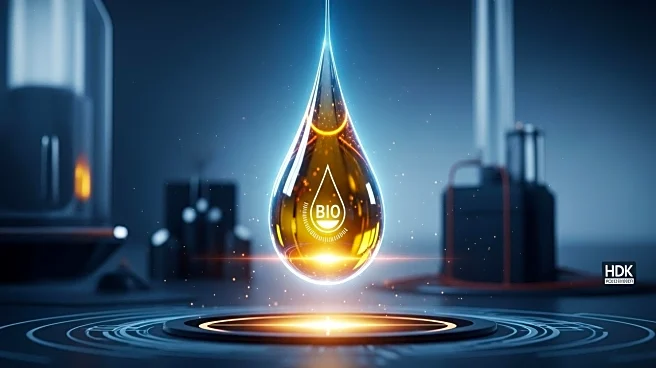What is the story about?
What's Happening?
Iowa State University researchers, led by mechanical engineering professor Mark Mba-Wright, have conducted a study on the viability of using bio-oils to plug abandoned oil wells. This innovative approach involves using oil derived from plant waste through a process called pyrolysis, which also produces biochar. The study, in collaboration with Charm Industrial, explores the potential of mobile pyrolysis units that could process biomass on-site and transport the bio-oil to central hubs for injection into wells. The research indicates that bio-oil could serve as a cost-effective and environmentally friendly method for carbon sequestration, with the potential to create economic opportunities for farmers by utilizing agricultural residues like corn stover.
Why It's Important?
The use of bio-oil for plugging oil wells presents a sustainable solution to the problem of orphaned wells, which pose environmental and safety risks. This method not only helps in carbon sequestration but also offers a new market for agricultural waste, potentially benefiting rural economies. By providing a high-value carbon removal product, this approach could outcompete other carbon capture technologies. The development of mobile pyrolysis units could further enhance the feasibility and scalability of this technology, making it a promising avenue for reducing carbon emissions and supporting sustainable agricultural practices.
What's Next?
The research team and Charm Industrial are engaged in ongoing discussions to further explore the potential of pyrolysis and bio-oil applications. The study suggests that scaling up the production of mobile pyrolysis units could reduce costs and increase productivity, making this technology more competitive with other carbon sequestration methods. As the carbon removal sector grows, there may be increased collaboration with farm and forest communities to expand the use of bio-oil in plugging wells and other applications.
Beyond the Headlines
This development highlights the intersection of agriculture and energy sectors, showcasing how agricultural waste can be repurposed for environmental benefits. The potential for biochar to improve soil quality and reduce fertilizer costs adds another layer of value to this approach. The study also underscores the importance of innovative solutions in addressing climate change and the need for interdisciplinary collaboration to develop sustainable technologies.
















